Our Consortium
The PICKED Consortium brings together a diverse team of experts from leading institutions across Europe, all committed to advancing personalized medicine for chronic kidney disease (CKD). Comprising 10 beneficiaries and 8 associated partners from 7 countries, the consortium reflects a broad spectrum of expertise, including biomarker research, bioinformatics, ethics, and quality of life studies. This collaborative network includes universities, research institutes, hospitals, and healthcare organizations, each contributing unique strengths to foster interdisciplinary training and innovation.
Meet the PICKED Project Partners
Institut National de la Santé et de la Recherche Médicale (Inserm), France
Delta 4 GmbH (Delta4), Austria
Fundación Instituto Investigación Sanitaria Fundación Jimenez Diaz (FIIS-FJD), Spain
Biomedical Research Foundation, Academy of Athens (BRFAA), Greece
Mosaiques Diagnostics (MOS), Germany
Steno Diabetes Center Copenhagen (SDCC), Denmark
Universitätsklinikum Heidelberg (UKL-HD), Germany
OÜ Optofluid Technologies (OFT), Estonia
RD - Nephrologie (RDN), France
Université de Toulouse (UT), France


The Institute of Metabolic and cardiovascular diseases (I2MC)
Inserm unit U1297, located in the Institute of Metabolic and Cardiovascular Diseases (I2MC), is both affiliated with Inserm and the University of Toulouse. Inserm counts 360 laboratories and 6000 scientists nationwide and focuses entirely on human health.
The Renal Fibrosis Laboratory (RF-lab) is internationally recognized for expertise in renal physiology, animal disease models, transcriptomics, proteomics, and systems biology and is composed of ~20 scientists and clinicians.
Inserm is coordinating the PICKED project. With respect to the science in PICKED, the Inserm-team will be involved in the definition of prenatal (amniotic fluid and fetal urine) and postnatal (urine) biomarkers of developmental and pediatric kidney disease.
We hope that this research will lead, on one hand, to personalized prenatal counselling of families expecting a child with developmental kidney disease, and on the other hand, to improved management of children with progressive kidney disease.
Inserm will collaborate in PICKED with Heidelberg, Hannover, and Toulouse.
Official Website: Inserm - Toulouse

The RF-lab team

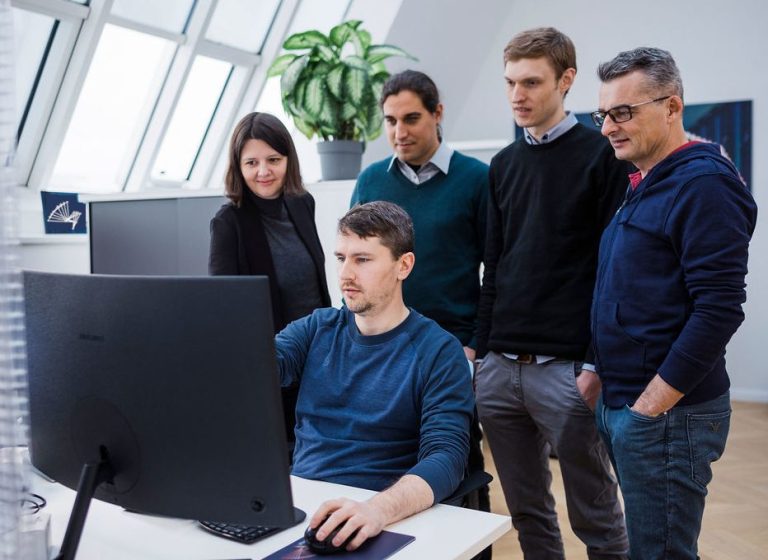
Delta4 Team
Delta4 is a TechBio company at the forefront of digital drug discovery and development. It leverages its proprietary computational software platform, Hyper-C, for biomarker, drug target, and drug assessment in the context of human diseases. This unique approach integrates iterative big data/in silico and experimental screens, enabling highly efficient matching of clinical indications with compound/drug effects. Our streamlined R&D process accelerates the path to clinical-stage testing, with a core methodology designed to enhance precision and increase success rates. The primary focus is on repositioning existing drugs for novel indications.
Within PICKED, Delta4 will host a PhD candidate who will consolidate acute kidney injury (AKI) and chronic kidney disease (CKD) omics profiles and generate network-based molecular models for the two disease entities. Network alignment methods will be used to identify overlapping/interacting molecular mechanisms at the AKI-to-CKD transition. Key molecules of the identified molecular processes will be evaluated regarding their potential to serve as AKI-to-CKD biomarkers or drug targets, taking into account information on tissue-specific expression, subcellular location, evidence in scientific literature, and mechanistic role in the context of dysregulated molecular processes. The prognostic potential of selected biomarkers will be evaluated in collaboration with the research group from Inserm, Toulouse.
Official Website: Delta4
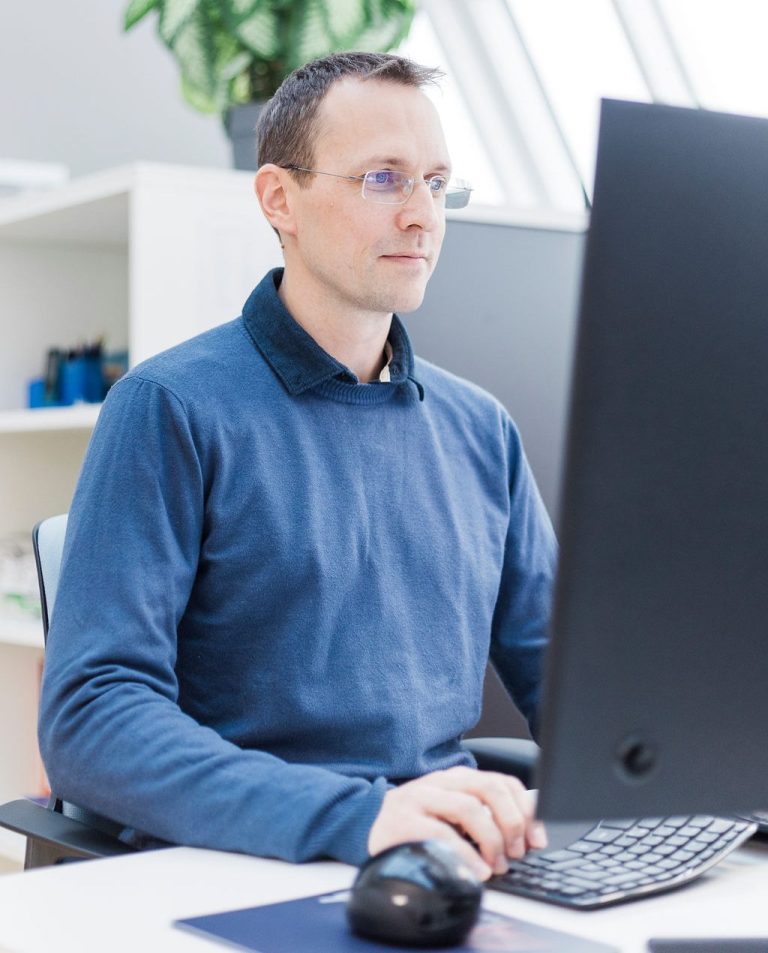
Paul Perco - Computational Biology Lead


The Fundación Jiménez Díaz University Hospital (FJDUH) Health Research Institute (IIS-FJD)
The Fundación Jiménez Díaz University Hospital (FJDUH) Health Research Institute (IIS-FJD) is a joint venture between FJDUH and Universidad Autonoma de Madrid (UAM). IIS-FJD is hosted in FJDUH and has research facilities that conduct translational and clinical research.
FJDUH has been named the best hospital in Spain for 9 consecutive years (Índice de Excelencia Hospitalaria (IEH General 2024). It was founded last century by Professor Jiménez Díaz to blend healthcare, teaching, and research. It is part of the public hospital system in the region of Madrid. Madrid is the European region with the longest life expectancy. The School of Medicine of UAM was ranked fourth in Spain by QS in 2024 and regularly ranks top in the National Exam for Specialty Training (MIR).
The Nephrology and Hypertension Laboratory is embedded in the clinical Nephrology and Hypertension Department. Both share an extensive translational and clinical research program aimed at decreasing the global burden of chronic kidney disease (CKD) through a better understanding of the pathogenic and kidney-protective cellular and molecular pathways that modulate both acute kidney injury (AKI) and CKD, and the design of novel risk stratification tools and therapeutic approaches. Techniques used range from cellular and molecular biology, bioinformatics, pathophysiology, and clinical trials to big data.
Unless we change the current management paradigm, CKD will become the fifth global cause of death by 2040, as it is among the fastest-growing global causes of death.
Official website: IIS-FJD

The Nephrology and Hypertension Laboratory


The Biomedical Research Foundation of the Academy of Athens
The Biomedical Research Foundation of the Academy of Athens (BRFAA) is a non-profit institute dedicated to understanding, treating, and preventing human ailments through biomedical research. BRFAA has gained prominence as one of the major Institutes for Biomedical Research in Greece, and researchers from the Institute have been awarded multiple competitive grants, including Marie Curie fellowships and training programs.
BRFAA will host DC4, who will validate protein biomarkers for prediction of CKD-relevant endpoints and treatment response. Working under the mentorship of Dr. Antonia Vlahou and senior researchers Drs. Aggeliki Tserga and Manousos Makridakis, DC4 will focus on the characterization of peptides of prognostic potential based on existent knowledge, targeting the identification of their post-translational modifications using advanced mass spectrometry, as well as validation of their association with cardiovascular disease and end-stage kidney failure in large CKD cohorts provided by the PICKED partners.
BRFAA will also participate in training, workshops, and networking activities.
Official website: BRFAA

Introducing our dedicated laboratory team, whose expertise and collaboration drive groundbreaking research and innovation.
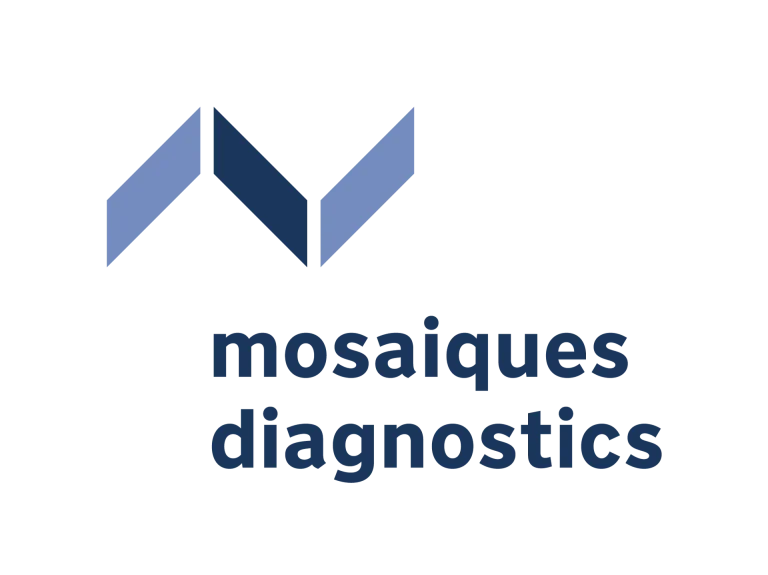
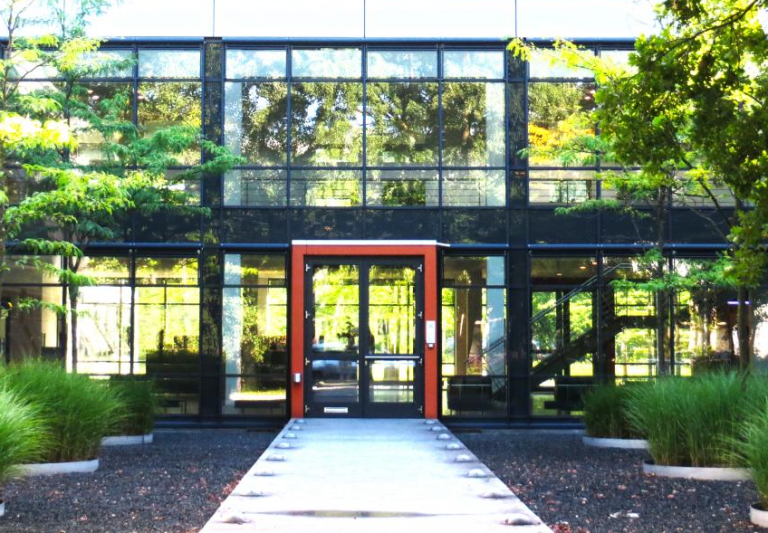
Mosaiques Diagnostics Headquarters
Mosaiques Diagnostics (MOS) is a global leader in clinical proteomics, specializing in the use of capillary electrophoresis coupled with mass spectrometry (CE-MS) for diagnosing and monitoring diseases, predicting therapeutic responses, and evaluating drug efficacy. A key focus of MOS’s work is on chronic diseases. Mosaiques Diagnostics has built a robust database of over 85,000 datasets and has contributed to more than 400 scientific publications. Its advancements in biomarker discovery have earned recognition, including a letter of support from the US FDA. The company has commercialized multiple urine-based biomarker tests in Europe, providing reliable tools for the early and accurate diagnosis of cardiovascular and kidney diseases.
The doctoral candidate hosted at MOS will focus on the development and implementation of high-dimensional classifiers designed to predict drug response and guide therapeutic interventions in chronic kidney disease (CKD) based on the previous work (https://doi.org/10.3390/ph16091298). This work will involve selecting relevant datasets from the extensive MOS database, identifying specific peptides associated with drug response, and integrating these peptides into high-dimensional classifiers for further validation.
Beyond research, MOS will provide the candidate with extensive training opportunities. This will cover practical skills in mass spectrometry analysis, in-depth data processing, statistical modeling, and classifier development. Additionally, the training will emphasize the clinical application of research outcomes, ensuring the candidate understands how to translate their findings into practical tools for healthcare.
Official Website: MOS


Integrating artificial intelligence with proteome and clinical data enables precise molecular insights for personalized disease detection and tailored therapeutic strategies.


Steno Diabetes Center Copenhagen
Steno Diabetes Center Copenhagen (SDCC) is a diabetes hospital and a research and development organization dedicated to delivering world-class treatment, research, and education in diabetes and related fields. For over 92 years, SDCC has been internationally recognized as a leader in clinical diabetes research and treatment. SDCC treats approximately 11,000 people with diabetes annually, including all 1,000 children and adolescents with diabetes in the Capital Region of Denmark. This makes it one of Northern Europe’s largest diabetes hospitals. SDCC maintains numerous regional, national, and international collaborations.
As part of the PICKED project, SDCC will host a PhD candidate to validate urinary peptide classifiers for predicting drug responses in individuals with diabetes and chronic kidney disease (CKD). The goal is to analyze these classifiers to enhance the understanding of chronic kidney disease in diabetes. The findings will contribute to a better comprehension of the dynamics and mechanisms underlying current treatments for chronic kidney disease in diabetes.
Official Website: SDCC

Steno Diabetes Center Copenhagen Entrance


Universitätsklinikum Heidelberg
Universitätsklinikum Heidelberg (UKL-HD) is a leading institution in pediatric nephrology and chronic kidney disease (CKD) research, renowned for its contributions to understanding and managing CKD progression and its complications. Through extensive collaborations, UKL-HD integrates clinical expertise and cutting-edge research to improve outcomes for CKD patients, particularly in pediatric populations. Their efforts have significantly advanced the development of predictive algorithms, biomarker discovery, and personalized therapeutic strategies for CKD, leveraging networks like ESCAPE and the 4C study cohorts.
It is central to the PICKED project, driving innovation in personalized medicine for CKD. It develops predictive algorithms and validates biomarkers using data from ESCAPE and 4C cohorts, while also training doctoral candidates through interdisciplinary education and secondments.
UKL-HD facilitates patient recruitment, data collection, and ensures compliance with ethical standards. By organizing international conferences and public events, it promotes the project's findings, solidifying its role in advancing CKD research and care.
Official Website: UKL-HD

Compassion meets expertise: Advancing personalized care for the next generation.


Optofluid team
OÜ Optofluid Technologies (OFT) was founded in 2012 as a spin-off company emerged from successful R&D from the Department of Health Technologies, Tallinn University of Technology. OFT’s main activity is developing sensors for real-time and online dialysis quality monitoring. The company has successfully raised private and public capital, with approximately 3.7M EUR invested in the current technology. OFT has managed to combine a broad and strong team with competencies in biofluid optics, renal replacement therapy monitoring, uremic toxins, and sensor technology.
As a partner of the PICKED project, OFT will host a PhD candidate to develop a technology for on-line monitoring of uremic peptides’ removal profiles and efficiency for personalized renal replacement therapy. The activities include exploration of optical spectral signatures of uremic peptides, development of algorithms for personalized assessment of uremic peptides’ removal, and proposing a concept for a technology for on-line monitoring of uremic peptides’ removal.
Official Website: OFT
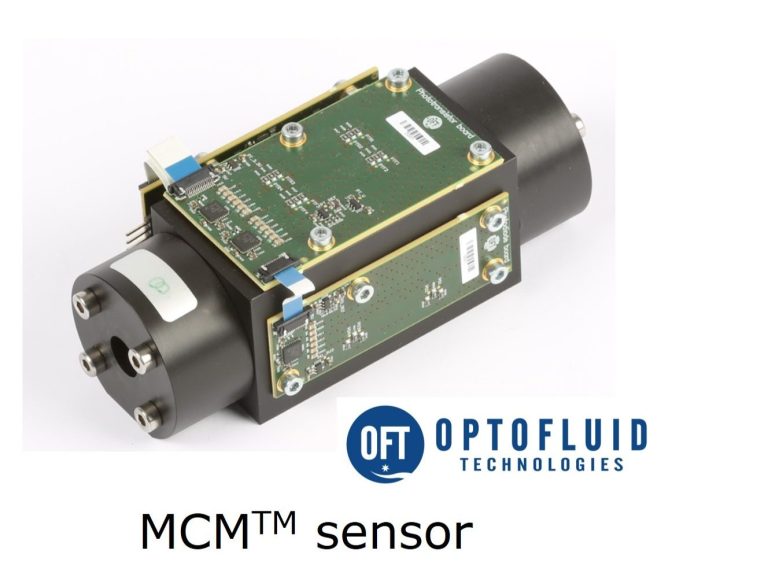
MCM sensor


Hemodialysis generator at bedside
RD – Nephrologie (RDN) is a spin-off of the Centre National de la Recherche Scientifique (CNRS) in France, founded by Dr. Àngel Argilés in 2005. RDN promotes and coordinates fundamental research and medical research in the renal field, which resulted in commercially available patented innovations in hemodiafiltration. RDN continues its research and development strategy in renal replacement therapies, in partnership with the Néphrologie Dialyse St Guilhem dialysis unit and University of Montpellier.
RDN will participate in training, workshops, and networking activities. RDN will host DC9, who will investigate the personalization of hemodialysis therapy, using state-of-the-art clinical equipment, experimental set-up, and simulation studies. Working under the direction of Àngel Argilés and Flore Duranton, and the mentorship of Alain Ficheux, DC9 is expected to develop a new prescription algorithm to personalize renal replacement treatment, promoting dialysis efficacy while preserving stakeholder acceptability.
Official Website: RD – Nephrologie

Electron microscopy of a dialyzer membrane. The hollow membrane is cut, displaying the internal membrane wall with a red blood cell (arrow) and the membrane cross-section.
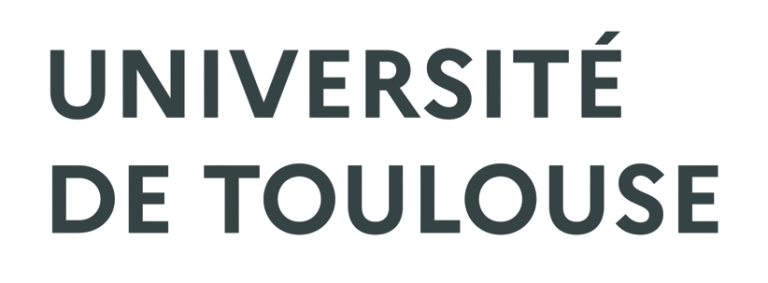
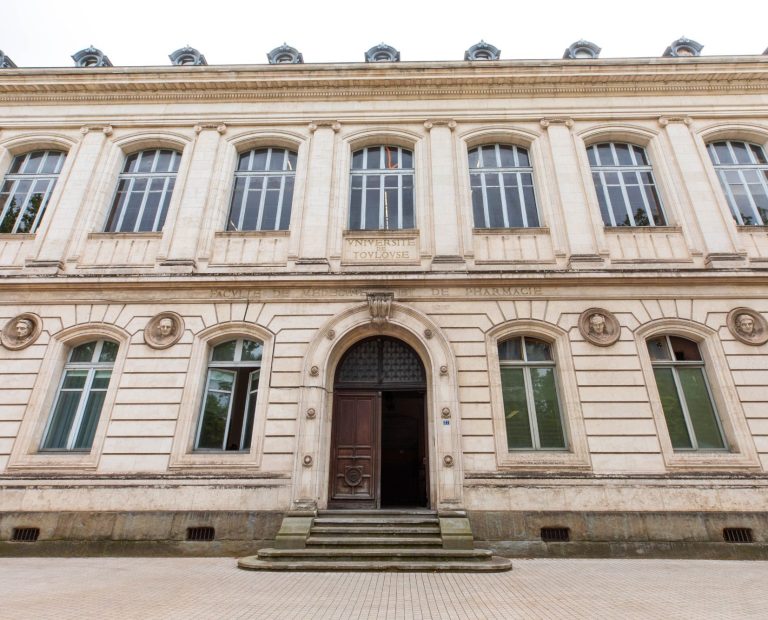
The Université of Toulouse
The Université of Toulouse (UT) is one of the largest French universities in the fields of science, health, sport, technology, and engineering. Through its scientific influence, diverse research structures, and qualitative educational offer, UT received the “Human Resources Excellence in Research Award” by the EC on 30th June 2020 and was ranked among the top 10 French universities in the 2022 Shanghai ranking.
The CERPOP laboratory (Centre for Epidemiology Research in Population Health), joint research unit n°1295 of Inserm and UT3, specializes in epidemiology, public health analyses, cohort and registry studies. Within this unit, the "BIOETHICS" team (BIOethics Exploring Trajectories of Health Innovations Challenging Society) focuses on the trajectories of health innovations, with a focus on bioethical issues and public health implications.
The team operates with specific competencies in biomedical ethics and health law, bridging biomedical and social sciences. It brings together highly trained scholars and researchers to address ethical and legal issues (ELSI) surrounding innovation in an interdisciplinary and methodologically rigorous way. The team has long-standing expertise in ELSI linked to biomedical research, particularly in fundamental rights and medical innovation.
In the PICKED project, BIOETHICS will be responsible for identifying and raising awareness of the legal, ethical, and quality-of-life issues associated with personalized medicine in chronic kidney disease (CKD).
Official website: UT

The Université of Toulouse